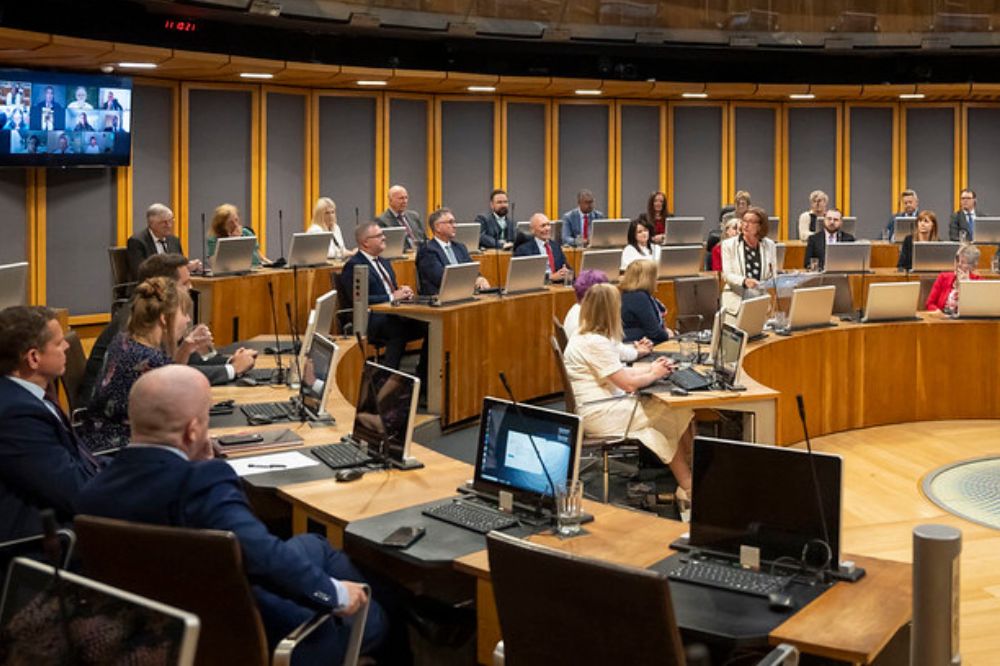Disqualifying dishonest politicians ‘disproportionate and dangerous’

Chris Haines ICNN Senedd reporter
Drawing the courts into determining whether to disqualify dishonest politicians from the Senedd would be disproportionate and potentially dangerous, a committee heard.
Azzurra Moores, policy lead at Full Fact, an independent fact-checking organisation, warned of political pointscoring as she gave evidence to an inquiry on November 25.
The Senedd’s standards committee is weighing up three options: creating a criminal offence of deception, a civil offence, or strengthening existing internal systems and sanctions.
Ms Moores recognised the need to shine a light on dishonesty and deception in politics but cautioned that involving the courts would do more damage than good.
She told the committee: “We are quite concerned that co-opting the criminal justice system to determine the truth and the accuracy of statements would be disproportionate and potentially dangerous, partly because we don’t think it’ll work in practice.”
‘Political interference’
Tom Brake, director of pressure group Unlock Democracy, said trust in politics has been on a downward trend for years, with a tendency to overpromise and underdeliver.
But the former Liberal Democrat MP said: “We do have concerns about the idea of creating a criminal or civil offence of deception … particularly around vexatious complaints.”
Mr Brake raised the risk of a repeat of headlines such as “Enemies of the people” in the Daily Mail after judges ruled the UK Government needed Parliament’s consent on Brexit.
He told the committee: “There are certain politicians who will use this to their advantage in terms of referring to political interference by judges.”
Responding to concerns about politicians marking their own homework, Mr Brake supported calls for lay members on the committee that considers complaints against Senedd members.
‘Growing problem’
Labour’s Lee Waters said the current standards system has failed to arrest a decline in trust, questioning whether continued tweaks are the right response to a growing problem.
Mr Brake argued the system works in some ways as he pointed out that Boris Johnson stood down in the face of a privileges committee report over Partygate.
The former deputy leader of the House of Commons also raised examples of leaflets claiming “waiting times at record highs” and “Liberal Democrats’ best election results”.
He said: “I’m not only concerned about vexatious complaints … but I’m also concerned about what would appear to be ‘legitimate’ complaints about statements that I suspect every single politician on this call has published in one or other of their leaflets.”
Mr Brake expressed concerns about the implications for parliamentary privilege which affords MPs immunity from legal challenge, allowing them to speak freely in parliament. In the Senedd, privilege is limited to defamation and contempt rather than “absolute”.
‘Self-policing’
Plaid Cymru’s Adam Price, who has led calls to create an offence, said parliamentary autonomy should be subject to external accountability in some circumstances.
He pointed to the Hillsborough law, which would make it an offence for civil servants to intentionally mislead the public, arguing the same principle should apply to elected officials.
Sam Fowles, director of the Institute for Constitutional and Democratic Research (ICDR), countered critiques of a model the think tank proposed to the committee.
Dr Fowles warned self-policing of parliaments has failed, with public trust in politics declining to historic lows, describing the courts as an independent and trusted alternative.
The barrister said the ICDR’s model contains strong safeguards, including a criminal offence of making a vexatious claim acting as a deterrent and an opportunity to correct the record.
‘Dangerous moment’
Jennifer Nadel, co-director of Compassion in Politics, raised the cross-party think tank’s petition, which has been signed by 200,000 people, calling for a law on politicians lying.
She warned the world is at a dangerous moment, with the rise of populist leaders in Europe and the election of US president Donald Trump, “who has no compunction about lying”.
Ms Nadel told the committee: “I think we have a very small window to try to shore up our democracy against the impact of deliberate disinformation by political leaders.”
The former barrister said politicians have lower levels of trust than ny other profession, with only 9% of the public believing what politicians say in the latest Ipsos “veracity index” survey.
Cautioning against “rearranging the deck chairs”, Ms Nadel stressed: “Politics needs to visibly take action to show it’s cleaning up its act, so that it can begin to restore trust.”
Support our Nation today
For the price of a cup of coffee a month you can help us create an independent, not-for-profit, national news service for the people of Wales, by the people of Wales.






How do you prove someone has unintentionally made a mistake from someone who has been genuinely dishonest?
ARTD is at the moment proving a system is required. Johnson laid the foundations in a parliament that could not control his lies, his minions continue to push the boundaries.
Didn’t think a legal locked up though. Political naughty step, pay and expenses suspended. Might not affect millionaire farmers though.
And when are this cartel bringing in a similar law to the Recall of MPs Act 2015 like Parliament has in place then.
The elephant in the room is that Welsh Labour refuse to pass lobby legislation in the Senedd that does apply in Holyrood and Westminster.